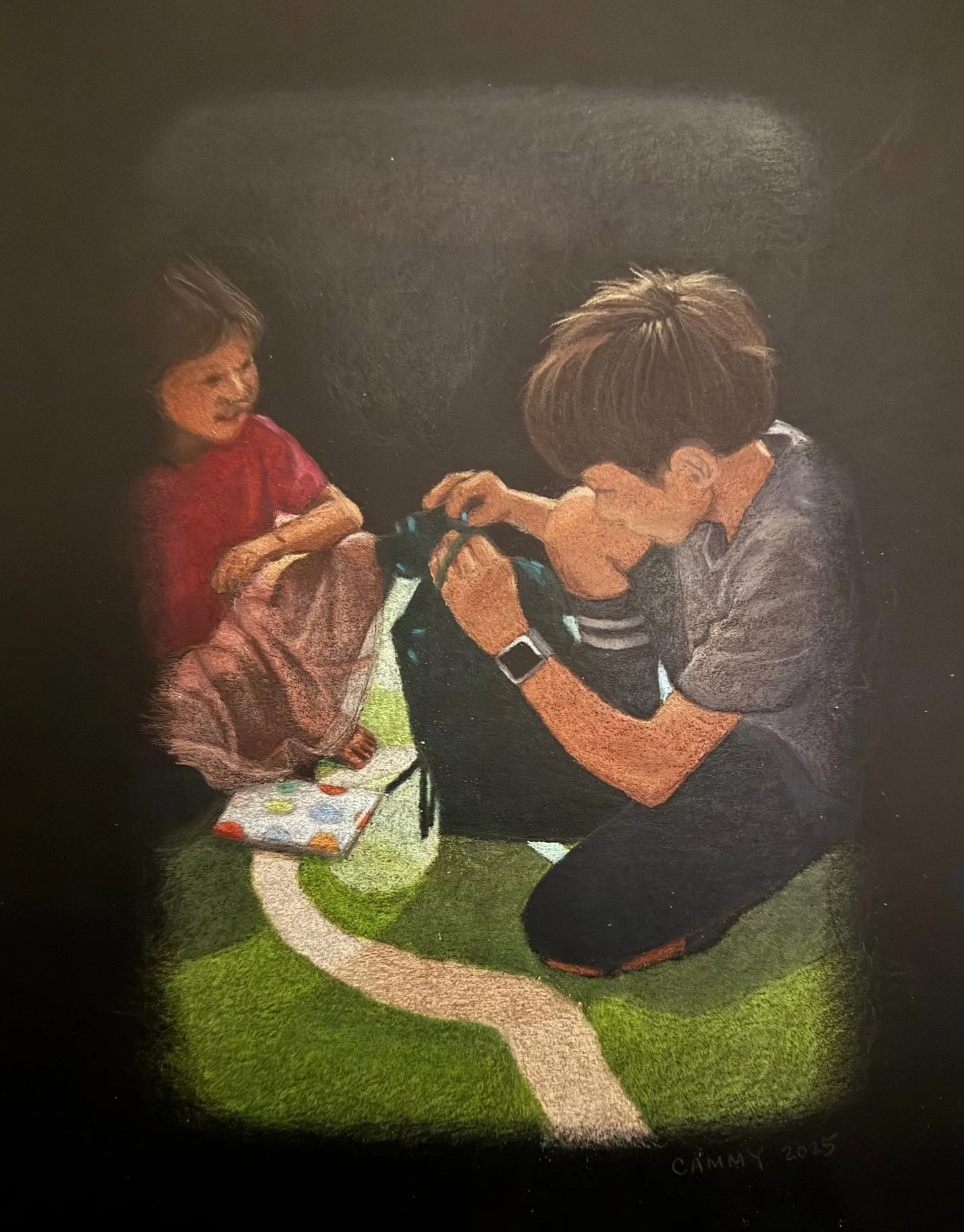(“Who’s there?”)
“It’s me.”
Yesterday AEM told me that she was having trouble thinking of five gifts for Christmas. She had thought of two, I think, and had three more to go. She listed for me who gives her the gifts (I didn’t quite catch the names), and she added that her aunt gives her lots of “surprise” gifts as well.
To me, it’s lovely that at Christmastime a child gets to be perplexed — and is not spoiled — by this kind of abundance. The situation emphasizes to the child that she is surrounded by a diverse group of people who love her.
— Adapted from a text message at 9:53 AM CT on 13 Dec 2025
When SWM was quite young, the card game “War” upset him. He would keep losing against me, and his dad and I were unable to explain to him that the game lacks strategy. A win is predetermined by the shuffle of the deck.
A particularly distraught session caused him to break down crying, with him failing to be comforted by his dad. Then I had an idea. I said, “SWM, let’s change the game so that we can look at our cards beforehand,” that is, before we made our plays. He agreed.
The game started to go better for him. He began to always win and was much happier. During “wars”, his hauls would astonish him, he turning over kings, queens, and jacks. Our games would proceed such that I would run out of cards and he would “donate” to me roughly half of his cards, so that we could continue playing.
After several months of this, he grew suspicious. He asked, “Are you being nice to me?” During an early game of this between him and me, when he had told his dad, “Cammy changed the rules!” his dad had responded good-naturedly, “That’s cheating!”
— Adapted from a text message at 9:45 PM CT on 15 Apr 2025
Tonight my dad told me that a high-school classmate of his is still a practicing dentist — on him and my mom in Taiwan this morning — at the age of 84! Perhaps I could tutor until that age. I am having success with RNM’s 7th-grade son, SWM, who seems to be enjoying his physics lessons. He requested physics as a topic after browsing through Halliday and Resnick 3rd edition, my college textbook. Today he and I did torque as applied to bicycle gears, and I may be able to explain cross product to him (right-hand rule we did today as well, magnitude is basically varying opposite/hypotenuse of a right triangle) as well as the limit of Calculus (he knows the formula for slope and I simply need to show him how this shrinks).
I love RNM’s children so much that this teaching is inspired.
— Adapted from an email at 9:35 PM CT on 21 Dec 2025
Camilla Mei-Fang Kao
A baby cries to get needs met.



